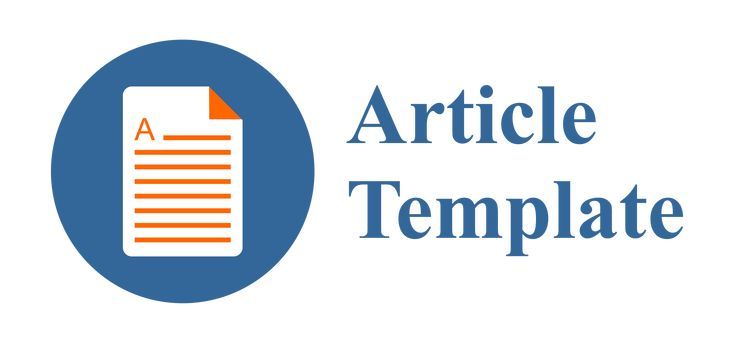Analisis dan Perancangan E-Learning Adaptif di Sekolah Menengah Kejuruan
DOI:
https://doi.org/10.29408/edumatic.v5i1.2544Keywords:
Adaptive, ADDIE, E-learningAbstract
Schools have not taken advantage in using technology to carry out online-based learning 4.0, though schools have computer laboratories and Internet networks. Teachers and students need e-learning media (ELM) that can be used in learning outside the classroom. The aim of this study is to analyze and design adaptive of ELM according to the needs of teachers and students at SMK Mandiri. The purpose of this study is to study to examine and to design of ELM in accordance with what is needed by teachers and students at SMK Mandiri. The method used in this research is R & D method apply ADDIE model by analyzing and designing stages only. The subjects of this development research were media expert and e-learning system expert. Data collection used is direct and indirect communication techniques, which is done virtually to determine the needs of teachers and students and questionnaire to determine the level of product feasibility. The results of this study indicate that there is a need for ELM-adaptive and designs at SMK Mandiri. The conclusion from this research is to analyze the ELM-adaptive, which can display three styles of student learning styles, namely, visual, auditory and kinesthetic, then designing and create a flow cart to describe ELM.
References
Ali, M., & Asrori, M. (2014). Metodologi dan Aplikasi Riset Pendidikan. Jakarta: Jakarta: PT. Bumi Aksara.
Brahmantio, D. I., & Anistyasari, Y. (2020). Studi Literatur Pengaruh Gaya Belajar Terhadap E-Learning Adaptive Berbasis Web. IT-Edu: Jurnal Information Technology and Education, 5(1), 362–370.
Branch, R. M. (2010). Instructional Design: The ADDIE Approach. New York: Springer Science+Business Media, LLC.
Dharmayanti, W., Verawardina, U., & Nurcahyo, R. W. (2018). Analisis Dan Perancangan E-Learning Adaptif Berdasarkan Gaya Belajar Pada Mata Pelajaran Simulasi Digital di SMK Negeri 7 Pontianak. Wahana Didaktika: Jurnal Ilmu Kependidikan, 16(2), 162–172. https://doi.org/10.31851/wahanadidaktika.v16i2.2046
Hakky, M. K., Wirasasmita, R. H., & Uska, M. Z. (2018). Pengembangan media pembelajaran berbasis android untuk siswa kelas x pada mata pelajaran sistem operasi. EDUMATIC: Jurnal Pendidikan Informatika, 2(1), 24–33.
Irawan, U., & Wirasasmita, R. H. (2019). Media Pembelajaran Video Tutorial Interaktif Berbasis Adobe Flash Pada Mata Kuliah Pemrograman Dasar. Edumatic: Jurnal Pendidikan Informatika, 3(2), 84–90.
Putra, I. G. J. A., Dantes, G. R., & Ernanda, K. Y. (2019). Adaptive Learning: Mengidentifikasi Gaya Belajar Peserta Didik Dalam Rangka Optimalisasi Sistem E-Learning Dengan Menggunakan Bayesian Network. Jurnal Ilmu Komputer Indonesia, 4(2), 21–30. https://doi.org/10.23887/jik.v4i2.2773
Sabirin, F., Sulistiyarini, D., & Zulkarnain, Z. (2020). Pengembangan Sistem Informasi Seminar dan Skripsi Mahasiswa. Edumatic: Jurnal Pendidikan Informatika, 4(1), 73–82.
Sari, I. P. (2017). Implementasi Pembelajaran Berbasis E-Learning Menggunakan Claroline. Research and Development Journal of Education, 4(1), 75–87. https://doi.org/10.30998/rdje.v4i1.2070
Setiawan, T., & Sudomo, R. I. (2019). Mengatasi Keragaman Gaya Belajar Pada Pendidikan Tinggi dan Vokasi Melalui Pengembangan E-learning Adaptive Hypermedia System Berbasis Moodle. EDUKASIA ISLAMIKA: Jurnal Pendidikan Islam, 4(1), 99–110. https://doi.org/10.28918/jei.v4i1.2261
Siddik, B., & Kholisho, Y. N. (2019). Pengembangan Modul Pembelajaran Perakitan Komputer Berbasis Multimedia Interaktif. EDUMATIC: Jurnal Pendidikan Informatika, 3(1), 13–19.
Surahman, E., & Surjono, H. D. (2017). Pengembangan Adaptive Mobile Learning Pada Mata Pelajaran Biologi SMA Sebagai Upaya Mendukung Proses Blended Learning. Jurnal Inovasi Teknologi Pendidikan, 4(1), 26–37. https://doi.org/10.21831/jitp.v4i1.9723
Surjono, H. D. (2013). Membangun Course E-Learning Berbasis Moodle (2nd Ed). Yogyakarta: Yogyakarta: UNY Press.
Surjono, H. D. (2015). Adaptive And Engaging E-Learning: Inovasi Pemanfaatan Teknologi Informasi Dalam Pendidikan Jarak Jauh (Naskah Pengukuhan Guru Besar). Yogyakarta: UNY Press.
Surjono, H. D., & Nurkhamid. (2008). Pengembangan Model E-Learning Adaptif Terhadap Keragaman Gaya Belajar Mahasiswa Untuk Meningkatkan Efektivitas Pembelajaran. In Universitas Negeri Yogyakarta. Yogyakarta: Yogyakarta: UNY Press.
Thoyib, M., Subandowo, M., & Wiyarno, Y. (2021). Penerapan E-Learning dengan Analisis Pengetahuan Awal Terhadap Prestasi Belajar Bahasa Inggris Siswa SMK. Edcomtech: Jurnal Kajian Teknologi Pendidikan, 6(1), 12–23.
Ziaurrahman, Z., & Surjono, H. D. (2017). Pengembangan E-Learning Adaptif Pada Mata Pelajaran Pendidikan Agama Islam Untuk Kelas X SMA. Jurnal Inovasi Teknologi Pendidikan, 4(2), 119–129. https://doi.org/10.21831/jitp.v4i2.10458
Downloads
Published
How to Cite
Issue
Section
License
All articles in this journal are the sole responsibility of the authors. Edumatic: Jurnal Pendidikan Informatika can be accessed free of charge, in accordance with the Creative Commons license used.

This work is licensed under a Lisensi a Creative Commons Attribution-ShareAlike 4.0 International License.




